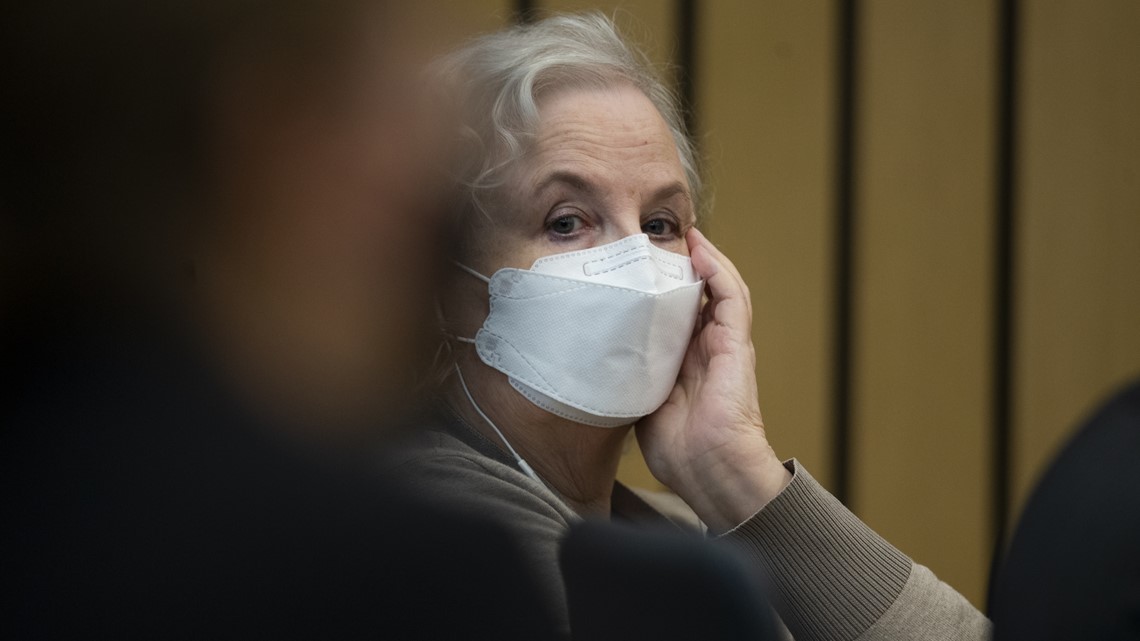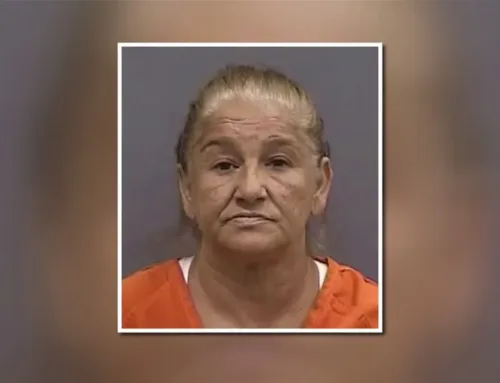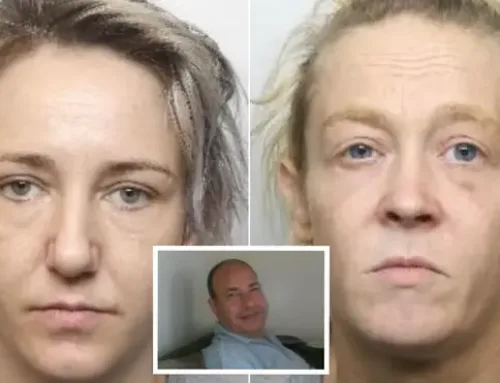KGW Staff
June 13, 2022
-KGW8
PORTLAND, Ore. — Self-published romance novelist Nancy Crampton Brophy was sentenced Monday to life in prison with the possibility of parole after 25 years for murdering her husband at his workplace in downtown Portland four years ago. A hearing for restitution is scheduled for August.
Crampton Brophy, 71, was found guilty of second-degree murder on May 25, following a trial that took place over more than seven weeks.
She was accused of shooting and killing her husband, 63-year-old chef Dan Brophy, inside the now-closed Oregon Culinary Institute at Southwest 17th and Jefferson Street on June 2, 2018.
Nathaniel Stillwater, the son of Dan Brophy and stepson of Crampton Brophy, was one of several family members who made statements before the sentencing.
“The pain you have delivered to us is immeasurable. Your theft of a parent and grandfather for such selfish reasons is unforgiveable,” said Stillwater of Crampton Brophy. “You were, to borrow from your catalogue, the wrong wife.”
The prosecuting attorney read a written statement submitted by Karen Brophy, the mother of Dan Brophy.
“We will never understand how you can decide that it was an advantage for you to take the life of our son. That he did not deserve to live…,” Karen Brophy wrote. “You will never know our beautiful, great grandchildren. Dan’s grandchildren. These children deserve to know and love him as we all have.”
A former student also gave a statement.
“Chef Brophy will continue to live on. He will continue to live on in all the hearts of those that knew and loved him, and his memory will never die,” said Clarinda
Crampton Brophy’s case gained national attention when it was discovered that she wrote an online essay titled “How to Murder Your Husband” years before the murder. The judge ruled on Day 1 of the trial that the essay would not be permitted as evidence.
Crampton Brophy was arrested in September 2018 and pleaded not guilty to her single charge of second-degree murder ahead of the trial. The trial began April 5 and was expected to take about six weeks, although it ended up running longer due to a pause midway through after someone in the courtroom tested positive for COVID-19.
Prosecutors claimed Crampton Brophy stood to gain a significant amount of life insurance money from her husband’s death, and brought in multiple witnesses to support their claim that the Brophys were facing financial issues at the time of the murder.
Prosecutors also focused on surveillance of a van believed to be Crampton Brophy’s that was seen around the Culinary Institute on the date of the murder. In closing arguments, the state hammered home to jurors that Crampton Brophy lied about her whereabouts that morning.
The prosecution also focused on the gun used in the murder. Prosecutors contended that Brophy first researched and purchased a “ghost gun” kit online, then later bought a Glock 17 handgun at the Portland Gun Expo and separately purchased another slide and barrel designed to fit it.
Portland police detectives testified that the slide and barrel on the gun that Crampton Brophy surrendered on the day of the homicide were not used at the crime, but that police were unable to recover the additional slide and barrel to compare it to the bullets fired at the crime scene.
Prosecutors also called in Andrea Jacobs, a former cellmate of Crampton Brophy, to testify as a rebuttal witness. When asked by prosecutors if she had ever spoken with Crampton Brophy about how her husband had died, Jacobs said, “Yes. She told me that he was shot two times to the heart, and she showed me the distance.” She said Crampton Brophy stretched out her arms and said, “it was about this far.”
Jacobs told the prosecutor that Crampton Brophy initially started to say “I” instead of “it,” but that she appeared to have misspoken and corrected herself.
The defense questioned Jacobs about her criminal history dating back several years, including embezzlement, fraud and identity theft, and pressed Jacobs on whether she planned to use her testimony to her benefit. Jacobs admitted that she had a pending motion for compassionate release from prison when she spoke to detectives about Crampton Brophy, but denied seeking any benefit from the conversation.
During its own case, the defense argued that the prosecution’s evidence was circumstantial, disputed the accusations of financial trouble and asserted that Crampton Brophy could not have killed her husband because they were in love to the very end.
Crampton Brophy’s niece, Sarah Gitchell, testified that Crampton-Brophy and her husband seemed to have an ideal relationship, and that Gitchell had spent a lot of time with Crampton Brophy after her husband was murdered.
“I personally observed her grieving, crying, sobbing, breaking down many times,” she said.
In her own testimony, Crampton Brophy said she missed her husband, calling him smart, bright, funny, kind and humble.
“It’s like you’ve lost an arm. Like you’re just not as good as you were when you’re with him,” she said. “You were the best you could be when you were together with him. Now it’s like, yeah, I function, but there’s something missing.”
She said the couple had struggled financially from 2014 to 2017, but had a plan to sell their home and buy a smaller property to catch up on debt and mortgage payments, and that they had purchased life insurance policies for both of them as part of their retirement planning. She also said her research into ghost guns was in preparation for a future novel.




